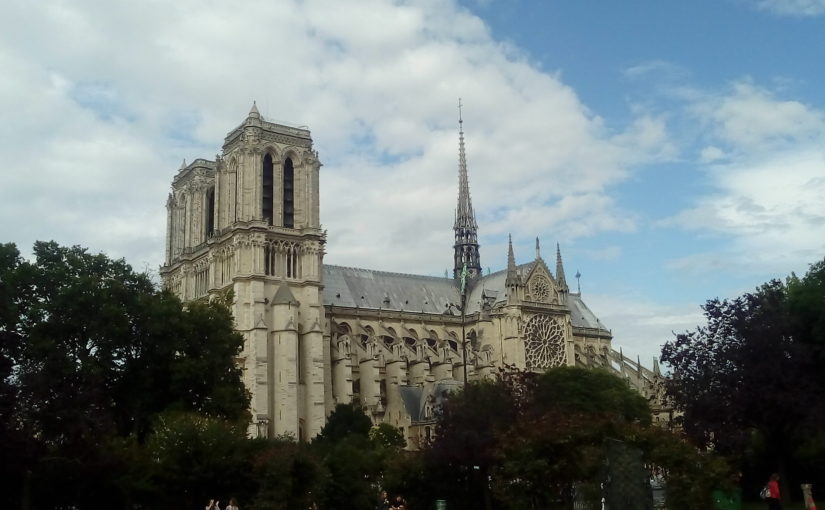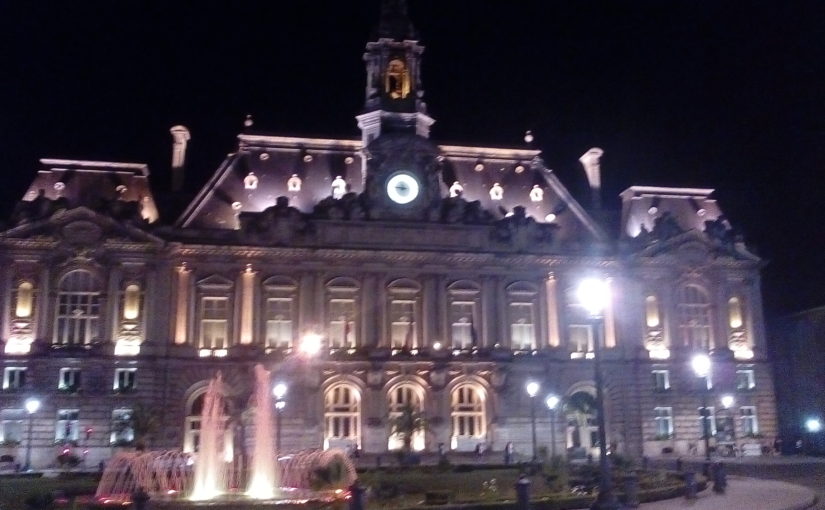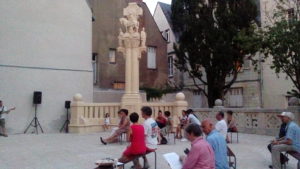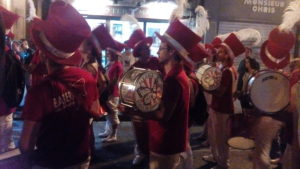I have finished my French language studies at Tours for this summer. My last professor, M. Jean-Jacques Bolo, was one of the best language instructors I’ve ever had, and I profited greatly from his instruction. Upon leaving the institute, I received my exit evaluations and discovered that I had moved from the low-intermediate level to the upper-intermediate level in all facets of the language. M. Bolo encouraged me to continue my studies, telling me that I’ve come too far to not keep working.
This sort of encouragement is absolutely necessary when studying a language. If I’ve learned anything this summer, it is how difficult a task it is to attain fluency in a foreign language. The space between not speaking a foreign language at all and speaking fluently could not be more vast. In the great space between these two poles, there lies a frustrating realm where you can sometimes make yourself understood, can sometimes fully understand others, and yet more often than not are frustrated by your limitations. To receive encouragement from an experienced professor, and a native Frenchman at that, helps buoy the spirit when it dips.
Upon taking a step back from my studies, I can say that I’m very pleased with my time at Tours and the gains I’ve made. I certainly speak better French than when I had arrived, my reading comprehension has increased greatly, and I can now write more complicated phrases than this time two months ago. Above all, however, I am pleased to say that I “hear” French much more ably now than I ever have before. The bane of every French student is the dreaded listening comprehension exam, which consists of listening to native speakers partaking in a conversation at everyday speed and then responding to questions about what you’ve just heard. There is a large difference between taking part in a conversation, which progresses only as fast as you let it, and trying to keep up with a conversation between native speakers that you are overhearing.
Two months ago, I was hardly able to overhear a conversation between French children, let alone adults discussing complicated subjects with unexpected turns of phrase. Thanks to my time in Tours, after listening to French conversations daily, and being forced to follow these conversations and respond in turn, I can now distinguish sounds and make sense of phrases more ably now than I ever could have from traditional studies alone. There is just no way to reproduce the experience of hearing native speakers use the language for extended periods of time. I certainly have a very long route to take in order to be able to passively listen to full French conversations and make sense of them, but thanks to this SLA Grant and my time in Tours, I’m closer than I would have ever expected two months ago.
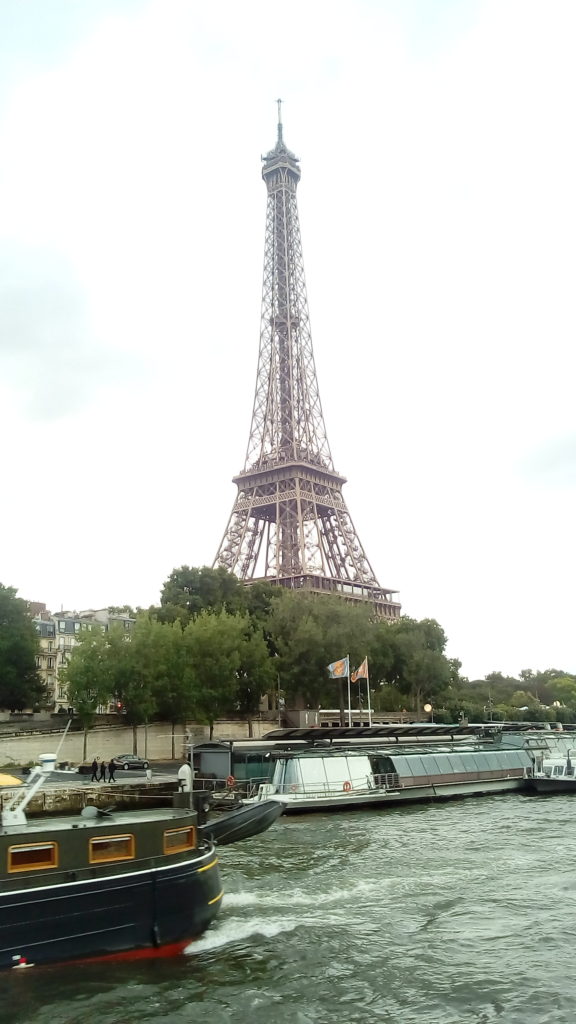
After my final day studying at the Institute of Touraine, I traveled to Paris for the weekend and became a tourist for a few days. This was my first time in Paris, in Europe in fact, and I was amazed to see the architectural and artistic achievements of French civilization. I visited Notre-Dame de Paris (the leading image of this post), the Eiffel Tower, Le Panthéon, Le Château de Versailles, Shakespeare and Company book store, and finished with a boat tour on the river Seine. Among these sights, Le Panthéon was by far my favorite place to visit. Originally a Catholic church dedicated to St. Genevieve, the building was repurposed during the French Revolution to become a momument to radical democracy. It is the final resting place of the heroes of the revolution. It is also the home to one especially famous literary intellectual and one philosopher.

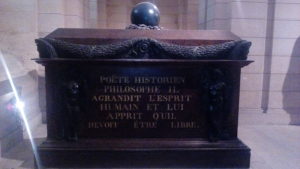
When you descend the steps and enter the crypt of the Panthéon, you will find two monuments on either side of you. To your left, you will discover a statue and an engraved tomb dedicated to Voltaire, author of Candide, ou l’Optimisme and Traité Sur La Tolérance .
To your right, you will discover an engraved tomb dedicated to Jean-Jacques Rousseau, author of the French Revolution and other more textual works. Sixteen years after his death in Ermenonville, France, Rousseau’s remains were disinterred and brought to Paris for a ceremonial burial in the Pantheon, sponsored by the Jacobin Club, agents of the Revolution. Rousseau’s influence among the revolutionaries probably could not have been higher. Having died in disgrace, it may have amazed Rousseau to know that he would be buried less than twenty years later in the most prestigious funerary location in all of Europe. Then again, perhaps he would not have been surprised to discover his lofty position in the world he helped create.
